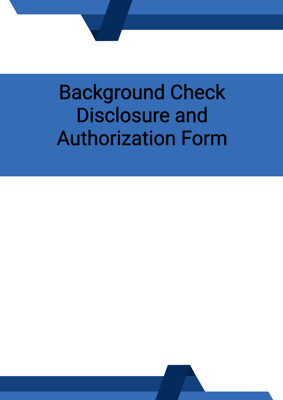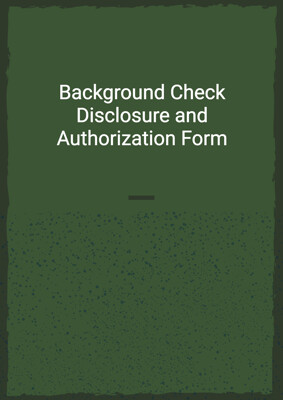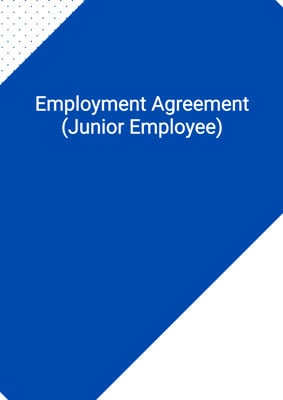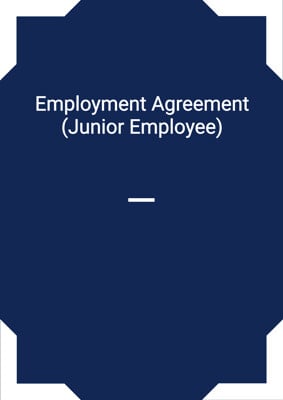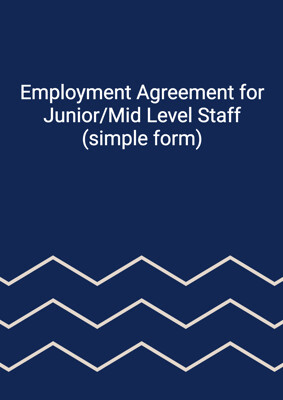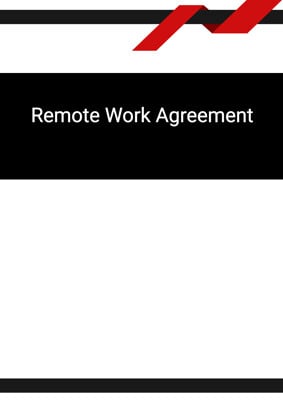How to Tailor the Document for Your Need?
01
Create Document
Fill in the details of the parties. You can click the "Fill with Member’s Information" button to complete it with information saved to your account.
02
Fill Information
Please fill in any additional information by following the step-by-step guide on the left hand side of the preview document and click the "Next" button.
03
Get Document
When you are done, click the "Get Document" button and you can download the document in Word or PDF format.
04
Review Document
Please get all parties to review the document carefully and make any final modifications to ensure that the details are correct before signing the document.
Document Preview
Document Description
This Secondment Agreement is a legal document that outlines the terms and conditions of seconding an employee from one organization (referred to as the 'Employer') to another organization (referred to as the 'Host'). The agreement starts by highlighting the importance of the document, emphasizing the need to clearly define the roles and responsibilities of both parties involved in the secondment.
The detailed introduction of the entire document explains that the agreement is made between the Employer and the Host, with the purpose of seconding an employee exclusively to the Host for a specified period. It also states that the employee will remain an employee of the Employer throughout the secondment period and will be subject to the Employer's personnel policies. The introduction further clarifies that the Host will be responsible for managing and supervising the employee, providing a safe working environment, and setting performance expectations. It also mentions that the Employer will continue to pay the employee's salary and benefits during the secondment period.
The document is divided into several sections, each with its own detailed introduction. Section 1, titled 'Secondment Description,' explains that the employee will be seconded to the Host to undertake a specific position in the Host's department on a full/part-time basis. It also mentions that any changes to the secondment period must be agreed upon in writing by both parties. Section 2, titled 'Host's Responsibilities,' outlines the responsibilities of the Host, including management and supervision of the employee, providing a safe working environment, and addressing performance management issues. Section 3, titled 'Salary and Benefits,' states that the employee will continue to receive the same salary and benefits from the Employer during the secondment period. Section 4, titled 'Travel,' explains that the Host will directly pay for any travel costs associated with the secondment. Section 5, titled 'Leave,' states that the employee is entitled to leaves as per applicable employment laws and must obtain prior approval from both the Host and the Employer. Section 6, titled 'Secondment Fee,' outlines the payment terms between the Employer and the Host for the services provided by the employee. Section 7, titled 'Reimbursement,' states that the Host will reimburse the employee for any expenses incurred during the secondment. Section 8, titled 'Injury, Damage, and Insurance,' clarifies the liability of the Host for any injury, damage, or loss caused by the employee during the secondment and mentions that the Employer will maintain necessary insurances. Section 9, titled 'Non-Solicitation,' prohibits the Host from soliciting the employee to terminate their relationship with the Employer or enter into another arrangement with a third party. Section 10, titled 'Ownership of Work Product,' states that any intellectual property created by the employee during the secondment will belong to the Host, and the Employer must seek approval before using it. Section 11, titled 'Indemnity,' clarifies that the Employer will not be liable for any loss or damage caused by the employee during the secondment, and the Host will indemnify the Employer for any claims arising from the employee's negligent acts. Section 12, titled 'Confidentiality,' outlines the employee's obligation to maintain the confidentiality of the Host's information during the secondment. Section 13, titled 'Termination,' explains the circumstances under which either party can terminate the agreement. Section 14, titled 'Amendment,' states that any variation to the agreement must be in writing and signed by both parties. Section 15, titled 'Severability,' clarifies that if any provision of the agreement is deemed illegal or unenforceable, it will not affect the validity of the remaining provisions. Section 16, titled 'Warranty of Capacity and Power,' includes representations and warranties from each party regarding their authority to enter into and carry out the obligations of the agreement. Section 17, titled 'Force Majeure,' states that neither party will be liable for any failure or delay in performing their obligations due to causes beyond their control. Section 18, titled 'No Rights under Contracts for Third Parties,' clarifies that only the parties to the agreement have the right to enforce its terms. Section 19, titled 'Arbitration and Proper Law,' encourages the parties to resolve any disputes amicably and in good faith. Section 20, titled 'Notices and Service,' explains the methods of serving notices between the parties. Section 21, titled 'Counterparts,' allows the agreement to be executed in multiple counterparts.
Overall, this Secondment Agreement is a comprehensive document that covers all aspects of the secondment arrangement, ensuring clarity and protection for both the Employer and the Host.
How to use this document?
To use this Secondment Agreement, follow these steps:
1. Review the agreement: Read through the entire agreement to understand its terms and conditions.
2. Customize the agreement: Modify the agreement to include the specific details of the secondment arrangement, such as the names and addresses of the parties, the secondment period, and the position/title of the employee.
3. Define the services: Clearly describe the services that the employee will provide to the Host during the secondment. Be specific about the scope of work and any deliverables.
4. Set expectations: Discuss and agree upon the performance expectations, feedback processes, and performance assessment methods with the Host. Document these expectations in writing.
5. Determine the salary and benefits: Decide whether the employee will continue to receive the same salary and benefits from the Employer during the secondment period. If there are any changes, ensure they are clearly communicated and agreed upon.
6. Address travel arrangements: If the employee will be required to travel on behalf of the Host, determine who will bear the travel costs and adhere to the Host's travel policies.
7. Obtain leave approvals: If the employee wishes to take any leaves during the secondment period, ensure they obtain prior approval from both the Host and the Employer.
8. Agree on the secondment fee: Discuss and agree upon the fee that the Host will pay to the Employer for the services provided by the employee. Clearly define the payment terms and invoicing process.
9. Reimburse expenses: Establish a process for the employee to submit expense claims to the Host and ensure timely reimbursement.
10. Address liability and insurance: Clarify the liability of the Host for any injury, damage, or loss caused by the employee during the secondment. Ensure that the Employer maintains appropriate insurances.
11. Prohibit non-solicitation: Ensure that the Host agrees not to solicit or hire the employee during the secondment period or for a specified period after the termination of the agreement.
12. Address intellectual property: Discuss and agree upon the ownership of any intellectual property created by the employee during the secondment. Seek written approval from the Host before using any such intellectual property.
13. Understand termination rights: Familiarize yourself with the termination rights outlined in the agreement and ensure compliance with the specified notice periods.
14. Seek legal advice if needed: If you have any doubts or concerns about the agreement, consult with a legal professional to ensure that your rights and interests are protected.
By following these steps, you can effectively use this Secondment Agreement to establish a clear and mutually beneficial secondment arrangement between the Employer and the Host.
Not the right document?
Don’t worry, we have thousands of documents for you to choose from:

